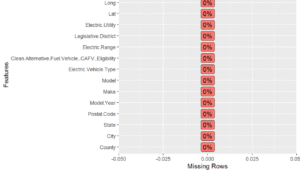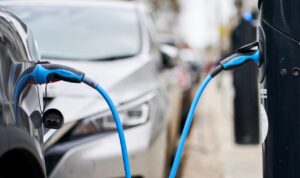How to Register and Insure a Used Electric Car is an essential guide for anyone looking to dive into the world of electric vehicles. With the growing popularity of used electric cars, understanding the registration and insurance processes has never been more crucial. Not only do these vehicles offer a cleaner alternative to traditional cars, but they also come with unique benefits and considerations that every potential buyer should be aware of.
In this guide, we’ll break down everything you need to know—from the registration process and required documentation to the various insurance options available and the environmental benefits of choosing electric over gasoline. Whether you’re a first-time buyer or a seasoned car owner, this overview will equip you with the knowledge you need to make informed decisions.
Understanding Electric Cars
Electric cars are becoming increasingly popular as more people consider environmentally friendly transportation options. A used electric car is a previously owned vehicle powered entirely by electric energy, as opposed to traditional gasoline engines. These vehicles use rechargeable batteries to store energy and may feature varying ranges based on their make, model, and age. Understanding the nuances of owning a used electric car can offer significant advantages to buyers looking to make a sustainable choice.The benefits of owning a used electric vehicle (EV) compared to traditional gasoline cars are noteworthy.
Firstly, electric cars tend to have lower operating costs as electricity is generally cheaper than gasoline, and they require less maintenance due to fewer moving parts. Additionally, EVs produce zero tailpipe emissions, contributing to cleaner air and a reduction in greenhouse gases. The growing infrastructure for charging stations also means that owning an electric vehicle is more convenient than ever.
Key Components of Electric Vehicles
Before committing to a used electric vehicle, it’s essential for potential buyers to understand the key components that differentiate these cars from traditional vehicles. Here’s a breakdown of the primary elements to consider:
- Battery: The heart of an electric vehicle, the battery stores energy and determines the range. Buyers should check the battery’s condition and its remaining life, as replacement can be costly.
- Electric Motor: This component converts electrical energy into mechanical energy to power the vehicle. Unlike gasoline engines, electric motors provide instant torque, resulting in quick acceleration.
- Charging System: Understanding the charging options—level 1 (standard outlet), level 2 (home charging station), and DC fast charging—is crucial for determining how and where the vehicle will be charged.
- Regenerative Braking: This feature allows the vehicle to recover energy while decelerating, which not only extends the range but also minimizes brake wear.
- Onboard Computer: Modern electric vehicles are equipped with sophisticated systems for managing energy use and vehicle performance, providing drivers with key information about their driving habits and battery status.
Understanding these components will empower buyers to make informed decisions when selecting a used electric vehicle, ensuring they choose a model that meets their needs and expectations.
Being aware of the unique characteristics of used electric cars can enhance the ownership experience and contribute to a more sustainable future. As these vehicles continue to evolve, buyers can take advantage of the growing market and improved technologies available in the electric vehicle space.
Registration Process for Used Electric Cars
When it comes to registering a used electric car, there are steps that vary by state or country but generally follow a similar framework. Understanding this process ensures that you comply with local regulations, making your vehicle legal to drive while enjoying all the benefits that come with owning an electric vehicle. The registration process typically involves several key steps that align with the requirements of your local motor vehicle authority.
The following Artikels the essential steps for registering a used electric car, including the documentation needed and any fees that may be incurred during the process.
General Steps to Register a Used Electric Car
To successfully register your used electric car, adhere to the following steps:
- Gather necessary documentation.
- Complete the vehicle registration form.
- Submit the required forms and documentation to your local DMV or vehicle registration authority.
- Pay any applicable registration fees.
- Receive your registration and license plates, if applicable.
The first step involves collecting all necessary paperwork, which includes the vehicle title, proof of ownership, and any inspection reports required by your state. Each document plays a crucial role in verifying the vehicle’s history and your right to register it.
Required Documentation for Registration
Having the correct documentation ready can significantly streamline the registration process. The essential documents typically include:
- Title: This document proves ownership of the vehicle and is usually signed over by the previous owner.
- Proof of Ownership: This may include a bill of sale or an odometer disclosure statement, confirming that you have acquired the vehicle legitimately.
- Inspection Reports: Depending on your locality, a safety and emissions inspection may be mandatory before registration.
- Identification: A valid driver’s license or state ID is often required to complete the registration process.
It is advisable to check with your local authorities to confirm what forms of identification are accepted, as these can vary from one jurisdiction to another.
Potential Fees Associated with the Registration Process
Understanding the potential costs involved in registering a used electric car is vital for budgeting purposes. These fees can vary widely depending on your location and the specific regulations in place. Common fees associated with the registration process may include:
- Registration Fee: This is typically a flat fee that varies by state.
- Title Transfer Fee: If you are buying the car from a private seller, there may be a fee to transfer the title into your name.
- Inspection Fees: If inspections are required, there may be costs associated with having the vehicle inspected.
- Local Taxes: Some areas impose additional taxes based on the vehicle’s value.
In some states, electric cars may qualify for reduced registration fees or additional incentives, so it’s worth researching local regulations to take full advantage of any available benefits for electric vehicle owners.
Insuring Your Used Electric Car: How To Register And Insure A Used Electric Car
When it comes to insuring your used electric vehicle (EV), understanding the different types of coverage available is essential to ensure you are adequately protected. Electric cars come with unique considerations that can influence your insurance premiums and the type of coverage you might need.Electric vehicles typically require similar insurance coverage as conventional cars, but there are specific options tailored to their unique characteristics.
The most common types of coverage include:
- Liability Coverage: This is mandatory in most states and covers damages to others if you’re at fault in an accident.
- Collision Coverage: This covers damages to your car after a collision, regardless of fault.
- Comprehensive Coverage: This protects against non-collision-related incidents such as theft, vandalism, or natural disasters.
- Gap Insurance: This is especially important for new electric cars, covering the difference between what you owe on your car and its actual cash value in case of a total loss.
- Personal Injury Protection (PIP): This covers medical expenses resulting from an accident, regardless of fault.
Factors Affecting Insurance Rates for Electric Cars
Several factors specifically influence insurance rates for electric vehicles. Understanding these factors can help you make informed decisions when selecting insurance coverage. The following are some key elements that can impact your premium:
- Repair Costs: Electric cars often have specialized parts and technology, which can lead to higher repair costs compared to traditional vehicles. For example, battery replacements can be significantly expensive.
- Safety Ratings: Vehicles with higher safety ratings may qualify for lower premiums. Electric cars are often equipped with advanced safety features that can enhance their safety ratings.
- Driving Habits: Your driving history and habits, such as frequency of use and type of driving (city vs. highway), can also affect rates. Insurers may offer lower rates for those who drive less or have a clean driving record.
- Location: Where you live plays a significant role, as urban areas often experience higher rates of accidents and theft, leading to increased premiums.
- Vehicle Value: The market value and model of your electric car can affect how much it costs to insure. Luxury models may have higher premiums due to increased repair costs and theft risk.
Importance of Comparing Insurance Quotes
Before settling on an insurance policy, it’s crucial to compare multiple quotes from different insurance providers. This ensures you find the best coverage and rates to suit your needs. When comparing quotes, consider the following aspects:
- Coverage Options: Ensure that you are comparing similar coverage types and limits among different insurers.
- Premium Costs: Look beyond the initial premium; consider deductibles and any additional fees that might apply.
- Customer Service: Research customer reviews and ratings to gauge the quality of service from each insurance provider.
- Discounts: Some insurers offer discounts specifically for electric vehicle owners, which can significantly reduce your overall cost.
In conclusion, insuring your used electric vehicle requires understanding the unique factors at play. By examining various insurance options, assessing influences on rates, and comparing quotes, you’ll be better equipped to choose a policy that provides the protection you need while fitting your budget.
Environmental Impact and Incentives
Electric cars are quickly becoming a popular choice among eco-conscious consumers, and for good reason. By using electric vehicles (EVs) instead of conventional gasoline-powered cars, individuals can significantly reduce their carbon footprint and contribute to a cleaner environment. The switch to electric not only helps in reducing greenhouse gas emissions but also lessens air pollution, leading to healthier communities and ecosystems.One of the key advantages of electric cars over traditional vehicles is their efficiency.
Electric motors convert over 60% of electrical energy from the grid to power at the wheels, whereas conventional gasoline vehicles only convert about 20% of the energy stored in gasoline. This means that electric cars can provide the same amount of travel with far less energy consumption. Additionally, as the electricity grid becomes greener with more renewable energy sources like wind and solar, the environmental benefits of electric cars continue to grow.
Government Incentives and Rebates for Electric Cars
To encourage the adoption of electric vehicles, many governments offer various incentives and rebates for consumers. These financial benefits can significantly lower the overall cost of purchasing a used electric car. Some common incentives include:
- Federal Tax Credit: In the U.S., buyers of new electric vehicles may qualify for a federal tax credit of up to $7,500, depending on the vehicle’s battery capacity. Some states extend this benefit to used electric cars as well.
- State Incentives: Many states offer additional rebates or tax credits. These can range from a few hundred dollars to several thousand, depending on local policies.
- Utility Company Rebates: Local utility companies may provide incentives, such as rebates for home charging stations or reduced rates for electricity during off-peak hours when charging your EV.
- Reduced Registration Fees: Some states offer lower registration fees for electric vehicles, helping to save money when it comes time to register your car.
Finding the right incentives can be beneficial, and researching local or state programs is essential for maximizing potential savings. Many governments have established dedicated websites or departments to assist potential EV buyers in navigating available incentives.
Finding Local and State Programs for Electric Vehicle Adoption
To effectively locate local or state programs that support electric vehicle adoption, potential buyers can engage in several strategies. Many states have energy or transportation departments that maintain updated lists of incentive programs available to residents. Key resources to consider include:
- State Government Websites: Visit your state’s transportation or energy department website, where you can often find listings of current incentives and programs.
- EV Associations: Organizations focused on electric vehicles often provide resources and guides to state-specific incentives, including local chapters that may offer workshops or informative sessions.
- Incentives Databases: Websites like the Database of State Incentives for Renewables & Efficiency (DSIRE) provide comprehensive information on incentives available for electric vehicles across the U.S.
- Local Dealerships: Electric vehicle dealerships are often knowledgeable about current government incentives and can help guide you through the process.
As electric vehicles become a more significant part of our transportation landscape, understanding the environmental benefits and incentives can facilitate a smoother transition for consumers.
Maintenance and Care for Used Electric Cars

Taking care of a used electric car might seem less demanding than a traditional vehicle, but it still requires attention and regular maintenance to ensure longevity and optimal performance. Proper care can help retain the value of your electric vehicle and enhance your driving experience.
Common Maintenance Tasks for Electric Vehicles
Electric vehicles (EVs) have unique components that require specific maintenance. Regularly tending to these areas can prevent problems and extend the lifespan of your vehicle. Key tasks include:
- Tire Maintenance: Ensure tires are properly inflated and aligned. Regular rotations help prolong tire life.
- Brake Inspection: Electric cars often use regenerative braking, which can extend brake life. Regularly check the brake fluid and pads.
- Battery Monitoring: Keep track of battery health, including state of charge and degradation over time.
- Coolant Checks: Ensure the battery coolant level is adequate, as it helps regulate battery temperature.
- Software Updates: Keep the vehicle’s software updated to benefit from performance improvements and new features.
- Wiper Blades and Lights: Regularly check and replace worn wiper blades and burnt-out lights for safe driving.
Maximizing the Lifespan of a Used Electric Car
To enhance the longevity of your used electric vehicle, consider these practical tips that focus on driving habits and maintenance routines:
- Avoid Deep Discharges: Aim to keep the battery charged between 20% and 80% to prevent excessive wear.
- Use Eco Driving Modes: If available, utilize eco-driving features to optimize energy consumption.
- Regular Charging: Charge your vehicle regularly rather than letting it sit for extended periods without use.
- Limit Fast Charging: While convenient, frequent fast charging can accelerate battery deterioration.
- Stay Informed: Keeping up with manufacturer recommendations and joining electric vehicle forums can provide valuable insights for maintenance.
Importance of Battery Health
The battery is the heart of an electric vehicle, and its health directly impacts performance, range, and longevity. Monitoring battery health is crucial for ensuring your electric car remains reliable.
- Check State of Charge (SoC): Regularly observe the SoC and avoid letting it drop too low.
- Monitor Battery Temperature: Extreme temperatures can affect battery performance. Keep it within the recommended range.
- Watch for Warning Signs: Look out for unusual performance drops, longer charging times, or warning lights on the dashboard.
- Consider Battery Management Systems: Some EVs offer built-in systems to help monitor battery health; utilize these features for peace of mind.
“A well-maintained battery not only enhances performance but also preserves the vehicle’s resale value.”
Financing Options for Used Electric Cars
When considering a used electric car, understanding the financing options available is crucial for making an informed purchase. Different methods cater to varying financial situations, and identifying the best choice can significantly influence your overall cost and ownership experience. This section explores common financing methods, compares them, and highlights special programs that may benefit electric vehicle buyers.
Common Financing Methods for Used Electric Cars
Several financing methods are prevalent for purchasing used electric cars, each with its advantages and disadvantages. The most common options include:
- Traditional Auto Loans: These loans are offered by banks and credit unions, allowing buyers to finance their vehicle over a set term, typically ranging from three to seven years. Interest rates can vary based on the borrower’s credit score and the financial institution’s policies.
- Credit Union Financing: Credit unions often provide lower interest rates compared to traditional banks. They are member-owned entities that may have specific programs designed for electric vehicle financing, making them an excellent option for those looking for competitive rates.
- Dealer Financing: Many dealerships offer financing options, sometimes with promotional rates or incentives. However, it’s essential to compare these rates with other financing sources to ensure you’re getting the best deal.
- Personal Loans: A personal loan can be a flexible option for financing a used electric car. It allows borrowers to use the funds for any purpose, including purchasing a vehicle, but typically comes with higher interest rates than auto loans.
Comparison of Traditional Auto Loans and Electric Vehicle Financing, How to Register and Insure a Used Electric Car
When weighing financing options, it’s important to compare traditional auto loans with financing options specifically tailored for electric vehicles. The differences can impact your overall cost and the terms of repayment.
- Interest Rates: Traditional auto loans may have higher interest rates, especially for vehicles that are not classified as environmentally friendly. On the other hand, electric vehicle financing often features lower rates due to government incentives aimed at promoting environmentally friendly transportation.
- Loan Terms: Electric vehicle loans can sometimes offer longer repayment periods, making monthly payments more manageable. Traditional auto loans typically have more rigid repayment terms.
- Eligibility for Incentives: Financing options for electric vehicles may qualify you for additional incentives, such as tax credits or rebates, which can further reduce the overall cost of ownership.
- Down Payment Requirements: Some electric vehicle financing programs may have lower down payment requirements, making it easier for buyers with limited funds to enter the market.
Programs Offering Low-Interest Rates for Electric Vehicle Financing
Several programs and initiatives exist to support buyers of used electric cars, particularly through low-interest financing options. These programs can significantly reduce the cost of borrowing.
- Federal Incentive Programs: Many countries offer federal incentives that include low-interest loans or rebates for electric vehicle purchases. In the U.S., the EV tax credit can effectively lower the cost of financing for eligible vehicles.
- State-Specific Programs: Various states have their own programs that promote electric vehicle adoption through attractive financing offers. Check your state’s energy or transportation department for available incentives and low-interest loans.
- Automaker Financing Offers: Some manufacturers provide financing options that include low interest or cash-back offers for buyers of used electric vehicles. These offers are often time-sensitive and can vary by region.
- Green Financing Programs: Certain financial institutions have ‘green loan’ products specifically designed for environmentally friendly vehicles. These loans typically feature lower rates and favorable terms to encourage sustainable choices.
Understanding your financing options is a vital step in making a smart investment in a used electric car.
Resources and Tools
Navigating the world of used electric cars can be simplified with the right resources and tools at your disposal. Whether you’re in the early stages of research or ready to finalize your purchase, knowing where to find trustworthy information can make all the difference. This guide provides a comprehensive overview of websites, forums, and tools that can aid in your journey.
Useful Websites and Tools for Researching Used Electric Cars
When considering a used electric car, having access to reliable websites and tools is crucial for informed decision-making. Below is a curated table of essential resources:
| Resource | Description | Link |
|---|---|---|
| Edmunds | Comprehensive car reviews, pricing, and expert advice on electric vehicles. | edmunds.com |
| Carfax | Vehicle history reports to assess the condition of used electric cars. | carfax.com |
| EV Database | A detailed database of electric vehicles, including specifications and comparisons. | electricvehiclewiki.com |
| US Department of Energy | Information on electric vehicle models, incentives, and charging stations. | energy.gov |
Forums and Communities for Electric Car Buyers
Engaging with online forums and communities can provide invaluable insights from other electric car owners. These platforms allow potential buyers to share experiences, pose questions, and offer advice based on real-world usage.
- Electric Vehicle Discussion Forum: A community dedicated to discussing all things electric vehicles, where users can share tips and experiences.
- Reddit – r/electricvehicles: A subreddit where enthusiasts and owners discuss electric cars, share news, and provide support.
- InsideEVs Forum: A forum for electric vehicle enthusiasts to gather and discuss the latest trends and technologies in the EV space.
Online Calculators for Estimating Savings
Understanding the financial implications of owning a used electric car can be greatly enhanced through online calculators. These tools help estimate potential savings on fuel, maintenance, and taxes, providing a clearer picture of long-term costs. Utilizing these calculators is straightforward:
1. Fuel Savings Calculator Input your current fuel expenses and the expected efficiency of the electric car to see how much you would save annually. For instance, if you currently spend $200 per month on gas and the electric vehicle costs you $50 in electricity, your savings would be substantial.
2. Total Cost of Ownership Calculator This tool factors in purchase price, financing, insurance, maintenance, and potential tax credits. By entering specific data for the used electric car, buyers can compare it to traditional vehicles.
3. Incentive Calculators Many states offer rebates or tax credits for electric car owners. By entering your location and the vehicle’s details, these calculators can provide an estimate of the incentives available to you.
“Using these resources and tools not only helps streamline your research but also empowers you to make informed decisions, ensuring you get the best out of your electric vehicle purchase.”






